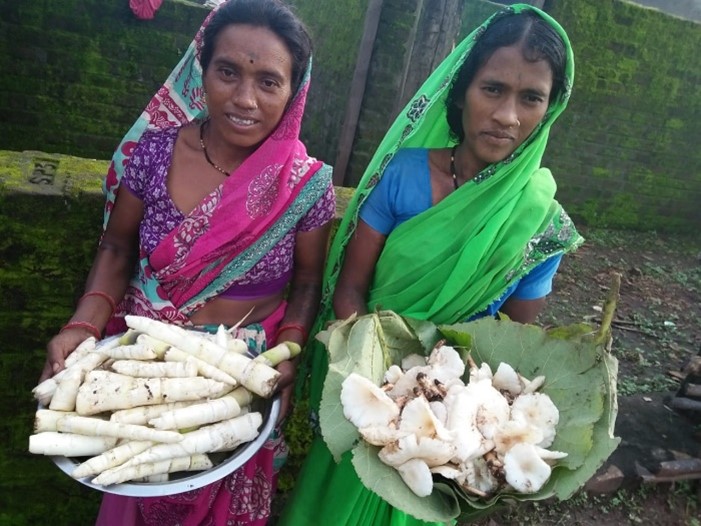STORIES OF CHANGE
Korkus Use Uncultivated Food to Fight Malnutrition
Posted Date:

Food and Agriculture Organization (FAO) estimates that 925 million people in the world are food insecure, where 194.4 million people are undernourished in India itself. This is around 21 percent of the total population stated by FAO. Meeting daily nutritious food needs is the most pressing challenge faced in the current world. According to the International Union of Forest Research Organizations (IUFRO), the world’s largest network of forest scientists proposes that forest can improve nutrition level and addressing hunger among the vulnerable groups.
Agriculture disarray and frequent crop losses have let to lower productivity leading to unbalanced diets lacking nutritional diversity. As a response to bridging the gap, SABAL foresees forest as a rich and diversified the alternative source of nutrition at zero cost. Often undernourishment is not due to lack of food but the lack of access to the right food.
Before SABAL, Korkus have less access to forest except for firewood and produces that provides them income like mahua (Madhuca Longifolia) flowers, Tendu leaves used to make bidis, Gum etc. These produces were permissible to be collected from the forest by the State authorities under restrictions. Currently, around 80 percent of forest lands are under the state ownership. Earlier the Korkus had a higher dependency on forest food. Majority of their food were gathered from forest with only a few staple grains being cultivated. Due to increased government restrictions there had been a reduce in the access to forest for uncultivated produces. Unfortunately, the newer generations even did not know about these produces.
SABAL had been intensively propagating about the various forest produces and its benefits among the Korkus. Through community meetings and awareness programmes the Korkus are being conscientized on various uncultivated food produces that are available for no cost from the mother nature which can help them to fight the chronic hunger and malnutrition prevalent among them since ages. Since past 4 years, 12 applications were submitted by 1599 community members in the Gram Sabhas demanding the accessibility to forest under the forest rights act (FRA). Dialogs and meetings with the government officials and also presentations of evidences proving the benefits of these forest produces to fight hunger and malnutrition has led to leniency in the restrictions.
The community have started reviving their dependency to various forest produces which includes Bhumalli (wild edible mushrooms), Kelta (tender bamboo shoots), Kakora (sweet gourd), Gatalu (wild potatoes), yams, green and red leafy herbs and vegetables etc. Compared to previous years community accessibility to forest has increased to approximately 2366 households which was around 662 during the initial phase of SABAL. SABAL regularly holds meetings with the children to sensitize them on uncultivated vegetables. SABAL team occasionally takes children for forest trekking for collecting uncultivated vegetables. Pregnant and lactating mothers have also started including these foods in their daily diet and preserving them for winters and summers. Savita from Avagadh expresses “In the past few years we had completely stopped going to forest for collecting food produces, now with SABAL we have started collecting food produces from forest.” “We were afraid of forest officials and seldom entered forest. Now we go confidently as the forest is ours and we have right to access and preserve it”, She added. Another villager Ramu Tumla Jambekar from Didamda said “Earlier we never bought vegetables from market and never had heard of malnutrition, increased dependence on market produce and poison treated food has led to such problem. I am happy now we are again getting access to these produces and our generations can taste these forest food”.
